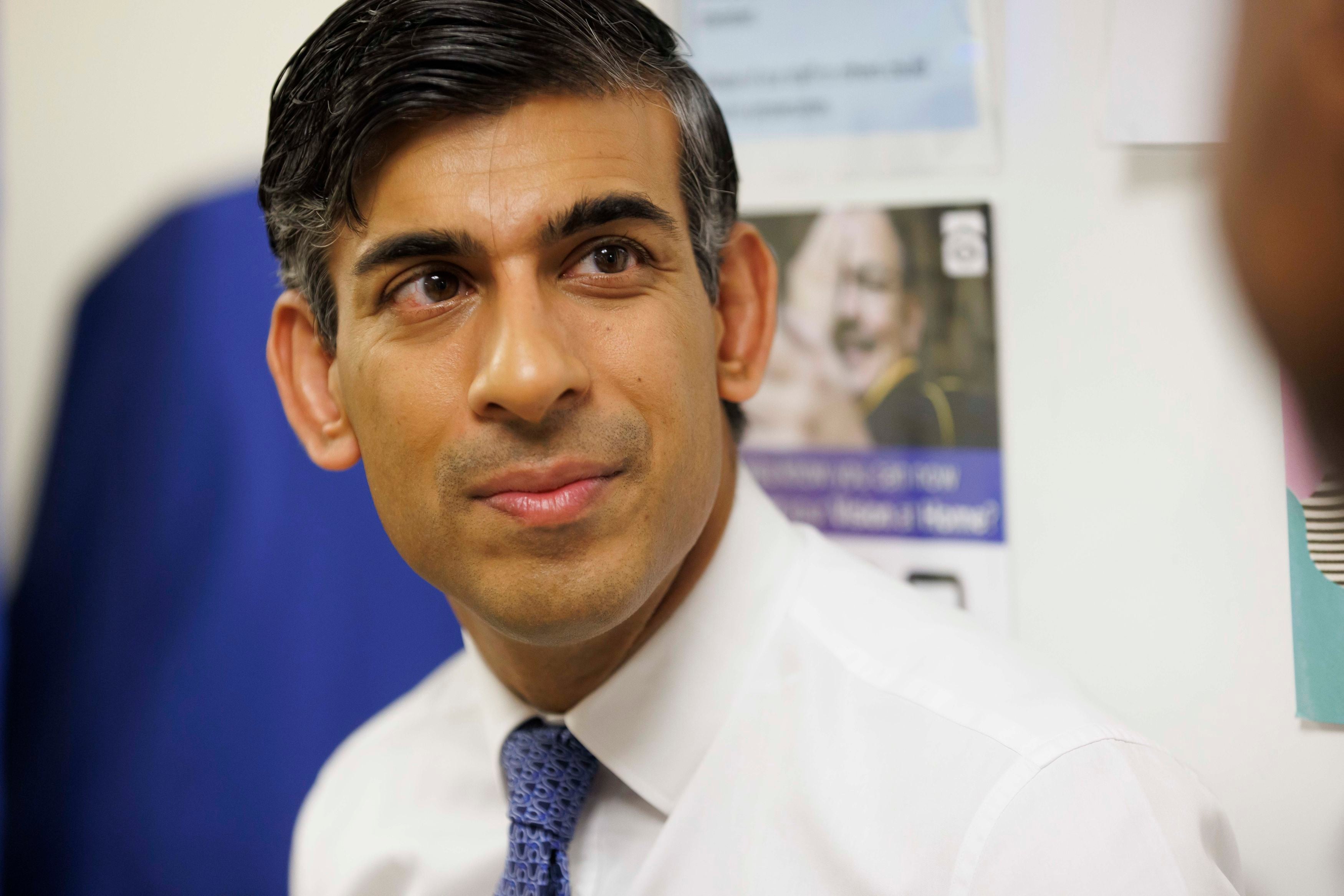Can Rishi Sunak reignite his premiership with the bills in the King’s Speech?
The PM is running out of time to convince voters he is on their side. Adam Forrest looks at whether legislative plans offer downcast Tory MPs hope of a revival


Rishi Sunak shows no sign of being spooked by his party’s frightful poll numbers as Halloween approaches. Conservative strategists have let it be known that they are considering holding the general election on Halloween 2024 – Thursday 31 October.
Will voters choose to end the Tory horror show? Mr Sunak still holds out hope his party can rise from the depths. “What can a country achieve in 52 weeks? Watch this space,” the PM’s latest social media clip boasted this week.
The Tory leader is running out of chances to revive his ailing premiership. Conference season, dominated by Mr Sunak’s decision to scrap HS2’s northern leg, was a missed opportunity to attract attention. The polls remain more or less static, with Labour enjoying healthy double-digit leads.
It puts even more pressure on No 10 to come up with a compelling legislative programme – and show the government is in touch with the public’s priorities – at the King’s Speech on 7 November.
The problem for Mr Sunak is that his party appears to have run out of big ideas, remains divided on some big issues, while the public finances don’t for anything that involves big money.
Well aware of how hard-pressed the nation feels, the PM is expected to “double down” on his effort to convince voters he doesn’t want net zero climate change commitments to cost them a penny.
Energy industry sources have said they legislation to introduce a new system for awarding oil and gas licences, as the Tory leader prepares to defy environmentalists – including those in his own party – with a push on North Sea fossil expansion.
You can also expect to hear more about moves to make it more difficult for councils to introduce ultra-low emission zones or 20mph speed limits, as the Tory leader pushes to convince motorists he is on their side.
The Tories still have a major problem with young voters, one they do not appear to have a solution for. The latest government legislative plan to emerge on housing is levelling up secretary Michael Gove’s move to phase out the “feudal” leasehold system in England and Wales.
All new homes will have to be sold as freehold properties, according to reports, while further changes will be aimed at giving current leaseholders more rights by capping ground rents and boosting their lease extension powers.
Is it enough to convince voters the government “gets” the housing crisis? It may be welcomed by some prospective buyers – but Mr Gove has angered renters by delaying the promised ban on “no fault” evictions until courts reform is achieved.
Mr Sunak – with his party divided into nimby MPs in rural constituencies and pro-growth advocates – does not have a settled plan to see more homes built. It is unlikely No 10 will bring back its failed plan to axe river pollution rules in a bid to boost development.
Can the government begin to address the twin crises in the courts and prisons? The justice secretary, Alex Chalk, has indicated a law allowing judges to force convicted criminals to be in court for their sentencing.
The government also wants legislation allowing prisoners to be held overseas, following similar steps taken by Belgium and Norway. These moves might win headlines – but they will come against a backdrop overcrowded prisons and the huge backlog of cases clogging up the courts.
Mr Sunak will be on safer ground with his smoking ban. Announced at the Tory conference, the idea of gradually raising the smoking age ever year (so a child who is 14 or under would never legally be allowed to buy cigarettes) has polled particularly well.
But it is still not clear if the government will finally – after U-turn upon climbdown upon delay – will bring in legislation to ban conversion therapy. There have been as series of cabinet and backbench squabbles over the move.
The PM is reportedly ready to publish a draft bill with a promise to consult his MPs in a bid to run the clock down before next autumn. There does not appear any enthusiasm in No 10 to actually pass the legislation.
Is it any wonder there is no enthusiasm for the government programme among voters? Unless Mr Sunak is full of surprises, at the end of several months of briefings to the press, it does not appear that he is ready to unveil an inspiring and ambition set of plans for the 12 months ahead.
The Tory leader will have to hope that Jeremy Hunt’s autumn statement later in November offers a better chance to appeal to fed-up but wallet-conscious Tory voters and draw some fruitful battle lines will Labour.
Mr Sunak is also keeping his fingers cross that the Supreme Court will rule in his favour on his asylum plans before Christmas and allow the first one-way flights to Rwanda take off.
Economists expect his January pledge to halve inflation – getting down to around 4.8 per cent – to be met by the middle of next month.
However much he likes to pretend to be the radical “change” candidate willing to take big decisions for the future, Mr Sunak’s only hope of narrowing the Labour poll lead is convincing wavering voters that he offers dull-but-necessary competence and is beginning to deliver some of what he promised.






Join our commenting forum
Join thought-provoking conversations, follow other Independent readers and see their replies
Comments